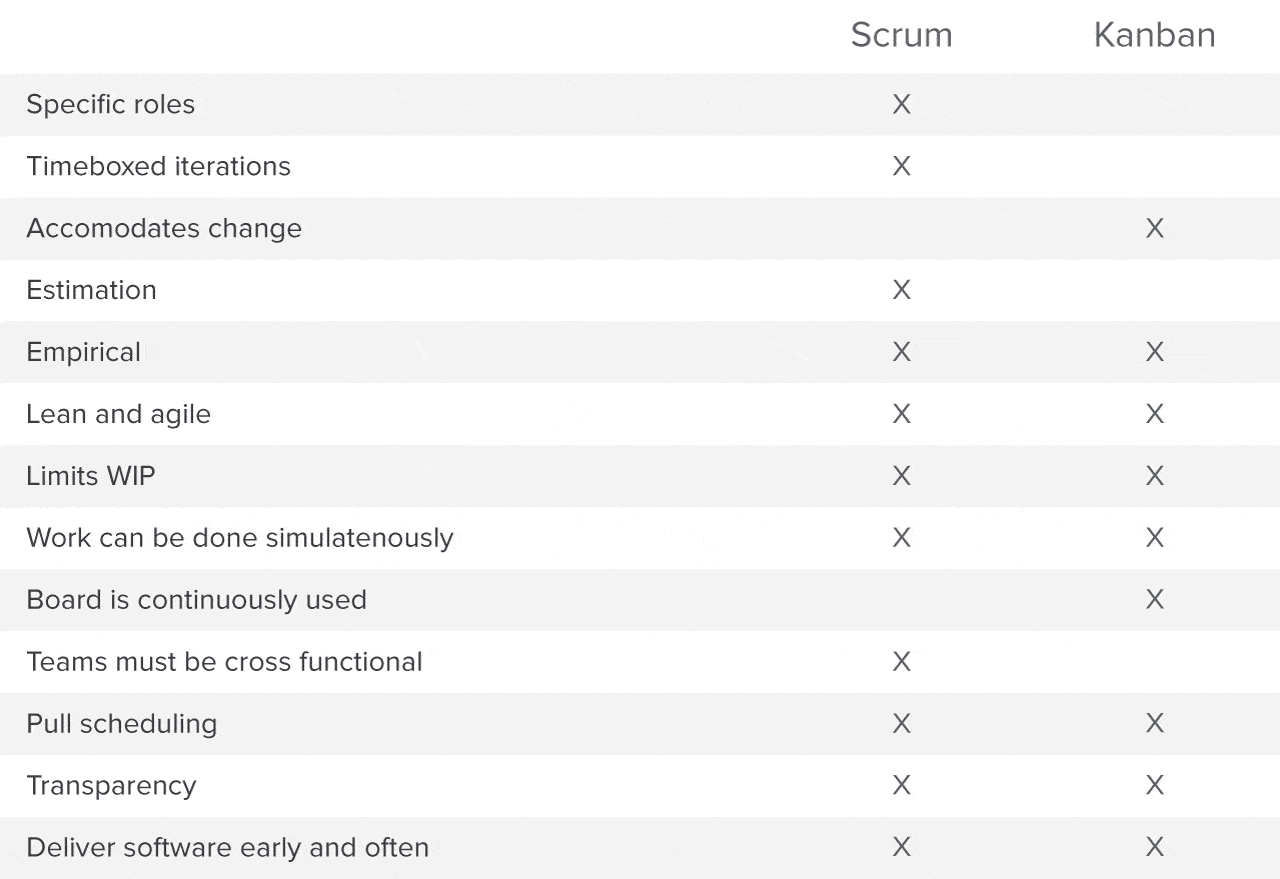What Is the History of Kanban?
The name Kanban translates from Japanese to “visual sign” or “card” and originated from the Toyota Production System and Lean Manufacturing in the late 1940s. Toyota made improvements to its processes by modeling them after how supermarkets stock their shelves.
Engineer Taiichi Ohno observed that supermarkets focused on stocking their shelves with just enough product to meet demand, and would only be triggered to restock when there was an empty space on the shelf. This shift optimized the flow between the supermarket and customer and improved inventory management efficiency.
Toyota brought this concept to the factory floor: Teams would create a visual cue, or Kanban, to communicate that they were ready to pull more materials to complete their work.
To learn more about the history of Kanban, check out The Newbie’s Complete Guide to Kanban by Top Experts.
Five Core Principles of Kanban
Kanban is a simple framework that does not require specific set up or procedures and is typically easy for teams to get started with or overlay on top of existing workflows. Many teams try Kanban project management to see if it lives up to its reputation of delivering increased productivity, higher quality, and reduced waste.
As a best practice, Kanban projects should incorporate the following five core principles:
- Visualize the workflow: To effectively manage the work with Kanban, you need to be able to visualize it. With an up-to-date, real-time Kanban board, you can quickly visualize the work and mitigate issues early on.
- Limit work in progress (WIP): Work in progress limits (WIP limits) determine the amount of work the team can accomplish for each phase and workflow being tracked on the board. Kanban focuses on reducing WIP to increase speed and throughput.
- Manage and enhance the flow: The movement of work or flow of work across the Kanban board must be monitored and improved upon. To do this, it’s necessary to measure and track performance metrics, like number of items in process and number of items completed, to calculate average completion rate and total cycle time.
- Make workflows explicit: To increase the efficiency of your workflows, you must ensure that your entire team is aware of the processes and procedures. Regularly review steps within the workflow to ensure they are as efficient as possible.
- Continuously improve: Once your team is up and running on the Kanban system, they should be able to identify issues and provide feedback on the process to ensure maximum throughput.
Additional Resources:
Advantages and Disadvantages of Kanban
The visual nature of Kanban offers unique value when deciding if it’s the right project management methodology for your team. Here are some additional advantages and disadvantages of choosing Kanban to manage projects:
Advantages
- Increase flexibility: With no set phase durations, Kanban is a fluid model where priorities are re-evaluated when new details arise.
- Reduce waste: Kanban focuses on reducing waste by ensuring that teams don’t spend time doing unnecessary work.
- Easy to get started: The visual nature of Kanban makes it intuitive and easy to understand, so teams don’t have to learn a whole new methodology.
- Improve flow: Kanban focuses on the just-in-time approach of value and delivering work on a regular cadence.
- Minimize cycle time: In Kanban, the entire team is focused on reducing bottlenecks to ensure that work moves quickly through the process.
Disadvantages
- Overcomplicated board: The beauty of Kanban is its simplicity, so the board should remain clear and easy to read.
- Outdated board: Teams must emphasize the importance of keeping boards up to date, otherwise they run the risk of working off of inaccurate information.
- Lack of timing: Since columns are only labeled with phases (to do, in progress, complete), it can be difficult to see when things will be done.
Additional Resources:
When to Use Kanban
Although originally established in the physical goods industries, Kanban is now used for intangible goods work, such as software development. Depending on your workflow, Kanban may be the right project management methodology to implement or to overlay on your existing processes.
However, considering the reduced ability to predict delivery timelines, you should consider the following factors when assessing whether Kanban is the right method for your team:
- You need a system that is flexible to add or remove items on the fly
- Estimation isn’t necessary
- You don’t have hard deadlines
- Continuous improvement is already emphasized
- You want the ability to release at any time
- Your team doesn’t respond well to big change
- The system needs to be easy to understand
- You want to improve delivery flow
Additional Resources:
Kanban vs. Scrum
Kanban and Scrum are both types of Agile project management, but they have the following differences:
- Scrum requires specific roles, while Kanban does not.
- Scrum is based on timeboxed iterations for planning, process improvement, and release. Kanban does not include required activities or timelines.
- Scrum focuses on limiting WIP in each iteration, while Kanban limits WIP in each workflow.
- Scrum is more rigid and resists change, like adding or removing items. Kanban easily accommodates and embraces change.
- Scrum boards are reset after each sprint, while a Kanban board is continuously used.
Additionally, Scrum and Kanban have the following similarities:
- They are empirical. The process must be tested to see what works for your team.
- Team members can work on multiple projects at the same time.
- Both limit WIP (although the way they limit it is different).
- They use pull scheduling.
- They focus on delivering software early and often.
- Both use transparency to improve process.
To learn more about the difference between Kanban and Scrum, check out our full comparison here.
